|
|  |
|
September 17, 2024
|
|
UK - GB milk production: August deliveries back slightly as prices rise
GB milk deliveries totalled 991 million litres in August, a decrease of 0.5% compared to last year. Daily deliveries averaged 31.9 million litres per day. Production for this year's milk season so far (April-Aug) stands at 5,258 million litres, back 0.9% compared to the same period of the year before.
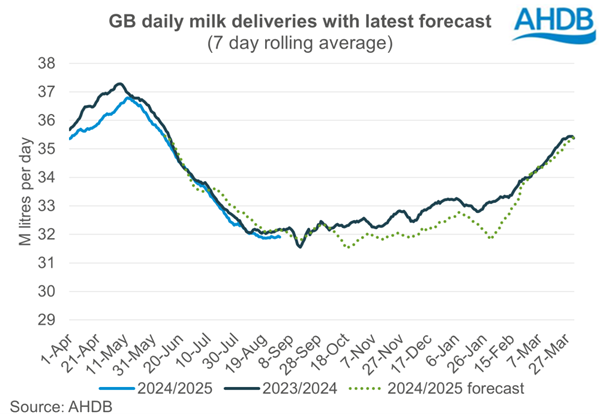
Graph showing GB daily milk deliveries volumes
AHDB's Forage for Knowledge recorded a decline in grass growth rate throughout August, with significant variation between regions. This is likely linked to the weather, with temperatures above average at the beginning of the month before cooling in the second half . Looking forward into the winter months, some producers will be cautious about forage supplies, following a very variable grass growing season and mixed reports regarding silage quality.
Read more on about GB milk production in August
|
|
|
|
|
UK - Latest developments in transition cow management and nutrition
Studies reveal potential 23:1 ROI by feeding rumen-protected choline
Some of the country's leading dairy nutritionists, producers and industry influencers converged on Stoke-on-Trent earlier this summer to discuss new developments in transition cow nutrition.
Hosted by Balchem Animal Nutrition & Health, the UK leg of a series of events across Europe was organised in partnership with Trident MicroNutri, and brought some of the leading voices in the industry together, to not only share research findings, but also look at practical trial results in a farm setting.
The 'New Developments in Transition Cow Nutrition' seminar saw renowned researcher and professor, Dr Jose Santos from the University of Florida, share some of the newest research demonstrating the many benefits of feeding rumen-protected choline to transition dairy cows.
Dr Santos was joined at the UK seminar by Anna Millar, Trident MicroNutri's ruminant technical manager, as she shared insights from the field.
Millar looked at how the highly concentrated form of rumen-protected choline, ReaShure XC, affects colostrum yield and quality. This included a look at the successful field trial work with the renowned Gold Cup winning dairy operation, Metcalfe Farms.
At the time of the trial, starting in April 2022, the dairy herd at Metcalfe Farms consisted of 1300 pedigree Holsteins with 1100 in milk, showing an average yield of 39kg per cow at 3.3% protein and 3.9% butterfat.
As high-yielding cows, averaging around 12,500 litres, their livers needed all the support they could get through transition. "The overall aim was to improve the transition of the cows and to increase three-week milk yields, so they could get the cows hitting the ground running and being more productive at the beginning of the lactation, achieving their full potential," explained Millar.
The close-up dry and fresh cow groups were fed ReaShure XC, at 21 days pre- and post-partum, via addition into TMR in a pre-blended pre-mix.
"The results saw colostrum quality increase, and metabolic incidences remained low," said Millar. "Cows at 21-days in milk lifted their milk yield by about 2.3kg. Heifers also transitioned well with a similar improvement."
The level of metritis and displaced abomasum (DA) also reduced, with a lot healthier cow seen through the transition period.
From an economic point of view, Millar looked at approximate costs of feeding the rumen-protected choline product on farm. "At 40p per day, based on a 42-day transition, three-weeks before and three-weeks after calving, which we think is best protocol for feeding ReaShure XC, this works out at £16.80 per cow per transition," she explained.
"In comparison to other approaches to supporting the energy balance of cows around calving, such as a bolus or bypass fats, the costs stand up extremely favourably, before even considering the additional benefits achieved, such as health and fertility."
Studies have proven that delivering choline during transition leads to substantial ROI, up to as much as 23:1, in terms of combined benefits to full lactation milk production, reduced metabolic disorders and improved calf health and growth.
"So, we can conclude that feeding ReaShure XC both pre- and post-calving delivers ROI, while supporting higher peak milk and lactation yield, healthier transitions, improved calf growth and health and increased colostrum production."
Trident MicroNutri
|
|
|
|
|
UK - DeLaval launches a new autonomous feeding robot
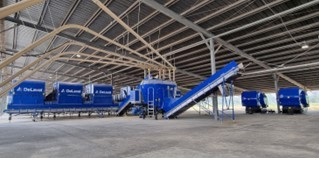 DeLaval has expanded its robotic offer to include the OptiWagon, a new electric autonomous feed distribution robot.
DeLaval has expanded its robotic offer to include the OptiWagon, a new electric autonomous feed distribution robot.
DeLaval specialist Wynand Bodenstein says: "Feeding is one of the biggest costs for a dairy farm and is also the most labour-intensive activity after milking. To help drive feed efficiency, DeLaval has launched a new robot as part of a combined automated feeding solution. It completes DeLaval's Optimat range of robots that provide a total feeding solution from weighing, cutting and mixing to delivering feed where and when it is needed. The OptiWagon is capable of supplying a variety of animal groups with different feed mixes up to twelve times per day. The recipes and the routes can be set and adjusted via DeLaval's DelPro farm management system.
"The new feed distribution robot helps to optimise the conversion of the forage dry matter into milk. Being able to do this efficiently is a great benefit for any dairy farm," says Bodenstein.
The OptiWagon forms part of DeLaval's Optimat robotic system and provides an efficient and flexible feeding system that can help to save valuable time and limit energy costs. The Optimat system is installed on over 600 farms, mainly in Europe, and is designed for a capacity of up to 1,000 cows.
"DeLaval stands by its concept of having separate products for mixing and cutting and distributing feed to provide a system that is better for both farmers and cows," concludes Bodenstein.
www.delavalcorporate.com
|
|
|
UK - Don't underestimate autumn staggers
Despite livestock being particularly at risk of developing staggers (hypomagnesaemia) in the spring, there is also a significant risk from the condition in the back end, with the autumn flush of grass.
The metabolic condition affecting both cattle and sheep is caused by a deficiency of magnesium in the diet. Autumn and spring grass flushes contain low amounts of magnesium, and if not supplemented with additional magnesium, signs of the metabolic system breaking down can be seen in livestock at these times.
The condition displays itself as twitching, tremors, reduced feed intake and ultimately death if not treated, explains Alister Davies, UK beef and sheep commercial manager at ForFarmers. He says: "Older and lactating animals or those which are stressed animals are most at risk. Those grazing grass which has had a recent application of slurry or other potash containing fertilisers may also suffer.
"Preventing grass staggers is much more effective than treating it. Giving sheep and cattle a supplementary source of the mineral is a cost-effective and important at this time of year."
Providing a source of magnesium which is easily absorbed by livestock is vital. Trials show Spanish magnesium (AGMA FG85) is more easily absorbed than magnesium from other part of Europe and that from China. There is also a link between milk production and the level of consumed AGMA FG85. "There is no better magnesium than AGMA FG85 on the market, according to research from Glasgow University. It is very palatable compared to other available magnesiums while also being up to 40 per cent more easily absorbed. Sodium also allows improved magnesium uptake.
"It is important animals get the mag every day. We advise providing stock with a magnesium bucket, particularly during the high-risk periods in the spring and autumn to help stock avoid developing staggers."
ForFarmers new-look Minline Ruminant High Mag bucket contains a unique formulation of magnesium to reduce the risk of spring and autumn staggers, along with sodium. A molassed mineral and vitamin supplement, it also contains zinc to support healthy feet, coat quality and skin health. "The inclusion of a magnesium source which is significantly more absorbable by the animal means there is no longer the need to include magnesium at 20%. A slightly lower mag inclusion also increases palatability ensuring satisfactory intakes are achieved to protect stock from autumn grass staggers."
ForFarmers
|
|
|
UK - Cream Awards High Performance Dairy Farmer
Sponsored by Arla Foods

|
The 2024 WINNER is Joe Ives, W & P Ives
W & P Ives have achieved remarkable success with the highest yielding herd on Lely robots in the UK, producing an impressive 14,384kg of milk per day.
Robotic milking for nearly five years, they have inspired many prospective robot clients. As members of the Premium Cattle Health Scheme, they are certified BVD, LEPTO, and IBR free, ensuring a high herd health status, which is key to their performance success.
Hosting educational visits, including vet students and non-farming clubs, their efforts also include reducing CO2 emissions and achieving a margin over purchased feed of £3,260.
|
Joe Ives receives his trophy from Tom Forshaw, Agriculture Manager, Arla Foods
Highly Commended: Mark Stewart, Smallholmburn
Starting with 250 acres and 130 cows, the Stewart family has grown to manage 1,000 acres and 600 Holstein cows, showcasing remarkable growth and commitment. Cows are yielding 13,964 litres a year, with investments in animal health and welfare include new housing, a modern parlour, and proactive lameness prevention protocols.
|
|
|
|
|
UK - Spray autumn reseeds for ley productivity
Weed competition can be significant in autumn reseeds and should be controlled to give young grass the best chance to establish and flourish. Having a strategy to control the problem is vital to protect grassland from yield losses over the coming months. Late summer and early autumn can be a popular time for reseeding as yield loss is minimised and new seedbeds have plenty of time to settle and establish over winter.
Dave Gurney, Corteva's Field Technical Manager for grassland crop protection said: "Check new leys regularly for any signs of weed infestation and act quickly to control them. In new leys it's important to tackle problem weeds such as chickweed and seedling docks early, before they damage the ley's performance and become a more significant problem."
Controlling weeds is easier and cheaper when they are small, and the roots haven't fully developed. "Broad-leaved weeds are best controlled when the grass has reached the three true leaf stage," said Dave. "If you've chosen this autumn to reseed any poor-performing leys, make sure you give them the best start and protect them with the right weed control.
"Autumn treatment of newly sown leys will remove competition from the establishing grasses and clovers at a time when they are least able to compete with broad-leaved weeds. This will enable the ley to get well established before the onset of winter and, so long as the ley isn't poached before animals are removed, it will be in good condition to grow actively in the spring with minimal competition. A good establishment of a newly sown ley will normally result in better grass yields for many years to come. There probably hasn't been a more important time to maximise home-grown forage than now."
'Envy' is an excellent solution for weed control in newly sown leys and is best applied six to eight weeks after reseeding. It gives good grass safety when used on new sown leys. Envy's wide weed spectrum includes chickweed, mayweeds, buttercups, dandelions, seedling docks and at the higher dose rate will also control docks which are growing from root fragments. Envy is available in a 3-litre pack and can be applied between 1 February and 30 November at 1.0-1.5 litres/ha, making it ideal for autumn reseeds.
Dave says: "Like most herbicides, Envy is not safe to clover. However, it is worth including clover in the mixture, in case weed control isn't necessary. Where clover is killed in situations where weed control is undertaken, this can be stitched in later - around three months after application."
For more information and support go to corteva.uk/crops/grassland
|
|
|
UK -Somerset: Youngstock and beef grazing event
Join AHDB and AF Group as we discuss how Dillington Farms can better manage the grazing of dairy youngstock and beef within their mixed farming system.
We will be joined by Luppo Diepenbroek from Straight Line Nutrition to discuss the principles of grazing and how they can be implemented on farm. Luppo is a keen follower of the regenerative agriculture movement in the UK and across the world. By understanding the nutritional demands of dairy youngstock, beef animals and far-off dry cows, informed decisions can be made about how to graze in an economically and environmentally sound way.
Click here to find out more.
|
|
|
|
|
UK- Hampshire: Enhancing biological assets event
AHDB Dairy's Strategic Dairy Farm, Whitewool Farm is hosting an event on enhancing the biology of soils and the impacts this has on farm performance and productivity.
At this meeting, you will hear from 'RegenBen', an independent consultant specialising in regenerative agricultural techniques. Ben will focus on the work he has been doing with Whitewool Farm to help them unlock their soil's potential and safeguard their profitability.
Register and find out more here: Hampshire: Enhancing biological assets | AHDB
|
|
|
UK - Dairy Farmer Forum in Exeter 24th September
Farmers thinking about converting to robotic milking, or already milking robotically and wanting to drive the best performance possible from their system, are invited to next Tuesday's ForFarmers Robotic Forum.
The event, being held on Tuesday 24 September at Sandy Park Conference Centre, Exeter, brings together experts from across the industry, as well a trade stands to view the very latest in products and services.
The technical speakers will be covering topics like planning the best possible layout for a robotic system, foot health and driving performance and efficiencies from your robot.
The event is free to attend but please book a place for catering purposes at www.forfarmers.co.uk/roboticforum
|
|
|
UK - DAIRY VITALITY AWARD winners announced
Sponsored by Wynnstay.

|
WINNER - Ruth & Stephen Ashley, PJ & PE Ashley & Son
Ruth and Stephen's unwavering dedication has transformed Meadow Bank Farm into a model of efficiency and innovation, with a herd of 120 cows producing an average of 15,000 litres annually. Their team's attention to detail, coupled with a passion for continuous improvement, drives the farm's success.
With a young family, they strive for a good work-life balance, with good staff management and the use of four Lely robots.
|
Ruth Ashley with sponsor David Howard Dairy Services Manager for Wynnstay, and Stephen Ashley
Highly Commended: Peter Hockridge, High Park Farm, SJ Hockridge & Son
High Park Farm's commitment spans fertility and lameness management, youngstock care, and achieving a better-than-average carbon footprint within the Arla milk pool in their 250-cow herd. Prioritising both staff and cow welfare, they invest significantly in team development and facilities.
Diversifying into pasteurised milk sales via a vending machine highlights their innovative spirit.
Full list of winners at www.creamawards.UK
|
|
|
UK - Volac Milk Replacers launches new 50% skim milk-based product
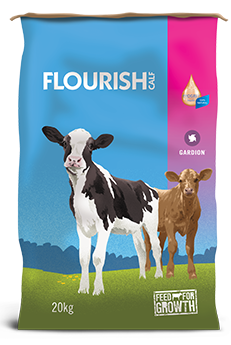 Volac Milk Replacers Limited has launched a new skim milk-based calf milk replacer product to meet demand from farmers for this type of dairy protein formulation. New Flourish Calf is an innovative 23% all dairy protein, 19% fat formulation with a high skim content (50%). It is also enhanced with a proven package of calf health ingredients, plus enhanced levels of vitamins and minerals.
Volac Milk Replacers Limited has launched a new skim milk-based calf milk replacer product to meet demand from farmers for this type of dairy protein formulation. New Flourish Calf is an innovative 23% all dairy protein, 19% fat formulation with a high skim content (50%). It is also enhanced with a proven package of calf health ingredients, plus enhanced levels of vitamins and minerals.
"Formulating to a 50% skim content means the level of casein in the product is maximised. This promotes good clot formation in the abomasum, improving digestibility of the casein protein to optimise pre-weaned calf performance. Lower skim content products won't perform similarly," warned Dr Jessica Cooke from Volac Milk Replacers.
Flourish Calf is designed to make calves thrive. It contains the optimal protein to energy ratio required by the pre-weaned calf. Flourish fed at 900g of milk solids per day (6 litres of milk mixed at the rate of 150g per litre) will supply 50g of crude protein per Mcal of ME - enough for a calf growth rate target of around 0.8kg per day. It contains a proven blend of high-quality vegetable oils to deliver enough energy (from fat and sugar) to fuel optimum growth, whilst ensuring that the fat content won't supress starter feed intake, delay weaning or slow the transition off milk replacer which can negatively impact the development of a calf into an adult animal.
Flourish Calf also benefits from the inclusion of 'Progres' - a unique natural ingredient made from the resin of coniferous trees, which supports good gut health and contributes to better animal performance.
"This resin contains specific natural substances that protect coniferous trees from bacteria, protozoa, viruses and fungi. With the development of Progres, these substances are now available for use in animals, helping to support intestinal integrity by utilising the natural protection mechanism of coniferous trees. In research studies, the inclusion of Progres in milk formulations has reduced antimicrobial treatments in pre-weaned calves and delivered improvements in growth and feed conversion efficiency," said Dr Cooke.
The addition of the proven garlic-derived Gardion health supplement, the accepted gut health improver butyrate - together with an optimum balance of vitamins and minerals -completes the exciting pre-weaned calf nutrition package offered by the new product. New Flourish Calf is now available alongside the established whey protein concentrate based range of 'Feed for Growth' pre-weaned calf milk replacers from Volac Milk Replacers Limited. "Whatever your calf rearing situation and performance goal, calf rearers can now confidently choose from a comprehensive range of precision-formulated milk replacers based on premium dairy protein ingredients that have been proven to fuel optimum growth and development, as well as deliver a return on investment," said Dr Cooke.
Further details from Volac Milk Replacers on 01223 657011.
|
|
|
Uk - Stack attacks or falling bales - how to reduce your liability
Farmers are being urged to take precautions and follow a few simple steps to reduce exposure to accidental damage or injury caused by falling straw or hay stacks, as well as fire risks as a result of malicious intent. "The first consideration should be to make sure appropriate signage is in place," says Nigel Wellings, director of Acres Insurance Brokers. "The Health and Safety Executive (HSE) will insist on, and expect you to have, danger signs around stacks, warning of the risk of falling bales," he adds.
According to Wellings, there is however a growing conundrum for farmers, balancing key priorities focused on health and safety requirements, with minimising fire risks caused by a criminal element.
"We are already witnessing a number of malicious fires this season, so clearly the focus is to move hay and straw stacks as soon as possible, and to do so you need easy access to them," he says.
"It is quite natural, therefore, that these bales are stacked near to farm roads so they can be moved quickly, but this in turn opens up more opportunity for those with malicious intentions to start fires. Our advice is to get the bales back to the main base or building as quickly as possible," he adds.
Wellings also advises that the majority of insurance companies will also impose stack limits on the value they will insure, on any one stack, often around £25,000 to £30,000.
"Farmers need to be aware and check with the insurance provider what their individual stack limit is, as well as checking the safety of these stacks," he continues.
A key safety point to consider, is keeping stacks away from rights of way, or other areas where the public may have close proximity.
Wellings' top tips: Make sure you have appropriate signage in place; Consider where you place the stacks; Keep an eye on stacks, particularly if the weather changes; Try and get stacks moved to base as soon as possible.
AcresInsuranceBrokers
|
|
|
UK - Cream Award for Innovation - winners announced
Sponsored by G Shepherd Animal Health

|
WINNER - BOVAER: DSM-FIRMENICH:
This revolutionary product, developed over fifteen years of dedicated research, represents a major leap forward in sustainable livestock production, said judges. Bovaer effectively reduces methane emissions from ruminants by 30%, making dairy cows "climate heroes" rather than villains.
Their innovation is setting new standards in reducing carbon footprints and advancing global sustainability and really is a true innovation for global livestock production.
|
Sponsor Graham Shepherd with Ruminant Technical Expert Laura Law , Consultant Adrian Packington and Dennis Rijnders Commercial Director: Bovaer EMEA & GKAs.
Highly Commended - ImmunIGY Bovine IgG:
ImmunIGY Bovine IgG is a groundbreaking point-of-care test that measures IgG levels in calves up to 42 days old, addressing the critical issue of Failure of Passive Transfer (FPT). This innovation enables farmers to monitor calf health more effectively, reduce mortality, and improve performance.
Highly Commended - Hoofcount Pedivue:
Leveraging AI and machine learning, Pedivue detects digital dermatitis up to 3-4 weeks earlier than traditional methods, reducing lameness and enhancing cow welfare. With 90% accuracy in hoof identification and 80% in detecting lesions.
Highly Commended - Trouw MyMilkPrint:
MyMilkPrint tool helps farmers measure and reduce their carbon footprint by providing actionable insights for more sustainable production practices. Trouw Nutrition's dedication to improving environmental impact and advancing dairy farming with precision nutrition and sustainability initiatives exemplifies their leadership in the industry, said judges.
You can read more about Bovaer and all innovation entries in the September edition of British Dairying.
|
|
|
Help us with your thoughts on dairy hygiene - British Dairying
We would be very grateful if you would spare a few minutes to complete a confidential questionnaire regarding your approach to dairy hygiene.
The information you give will be used only in aggregate and your views will be completely confidential, in accordance with the UK Market Research Society's code of conduct.
The questionnaire will take less than 10 minutes to complete and those completing the survey will be eligible to enter into a prize draw to win one £100 Amazon voucher.
Take the survey
|
|
| |
BRITISH DAIRYING
ENSURE YOU RECEIVE EVERY COPY
British Dairying is available by subscription at £70.00 posted to UK addresses,
£90.00 for Europe, £115.00 for the Rest of the world
or £30 +VAT for British Dairying Online only
|
|
| |
QUOTE
"This country-right-or-wrong business is getting a little out-of-date. History is moving pretty quickly these days and the heroes and villains keep on changing parts."
Ian Fleming
"Popularity should be no scale for the election of politicians. If it would depend on popularity, Donald Duck and The Muppets would take seats in senate."
Orson Welles
|
|
| |
|
|
|
You are receiving this email because you are a registered reader of British Dairying and we are pleased to send you extra information to supplement the journal.
|
|
|
|
|
British Dairying,
WB Publishing Ltd
Priory Cottage, Eastbourne Road Ridgewood East Sussex TN22 5ST
WB Publishing Ltd is registered in England and Wales, Registration No 2951727
|
|


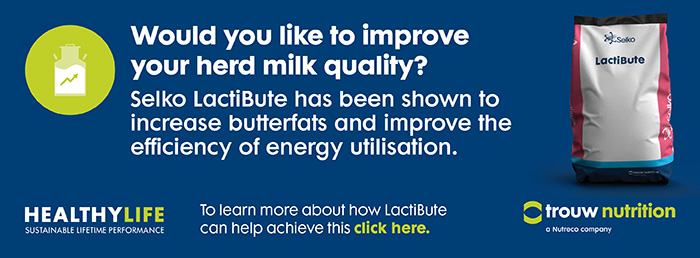
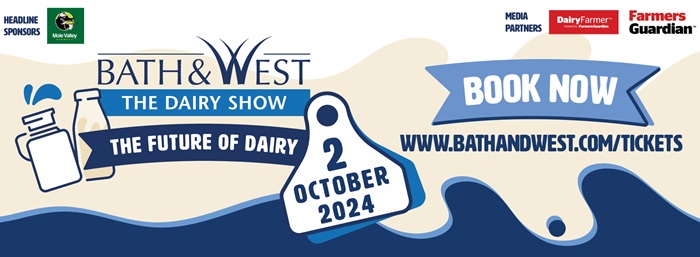
 DeLaval has expanded its robotic offer to include the OptiWagon, a new electric autonomous feed distribution robot.
DeLaval has expanded its robotic offer to include the OptiWagon, a new electric autonomous feed distribution robot.


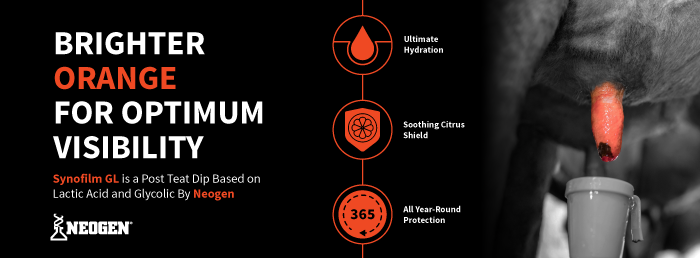

 Volac Milk Replacers Limited has launched a new skim milk-based calf milk replacer product to meet demand from farmers for this type of dairy protein formulation. New Flourish Calf is an innovative 23% all dairy protein, 19% fat formulation with a high skim content (50%). It is also enhanced with a proven package of calf health ingredients, plus enhanced levels of vitamins and minerals.
Volac Milk Replacers Limited has launched a new skim milk-based calf milk replacer product to meet demand from farmers for this type of dairy protein formulation. New Flourish Calf is an innovative 23% all dairy protein, 19% fat formulation with a high skim content (50%). It is also enhanced with a proven package of calf health ingredients, plus enhanced levels of vitamins and minerals.


